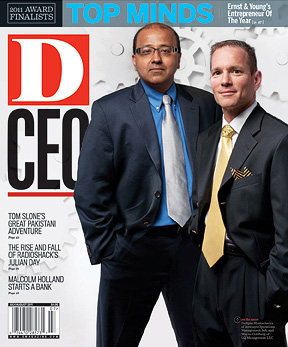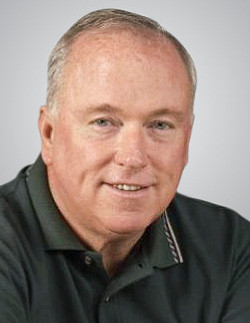
Charles “Mickey” Flood
Vice Chairman
With a successful waste-management career spanning five decades, Charles “Mickey” Flood is used to the question, “How did you do it?”
Six years ago he put it to paper and copyrighted his “10 Commandments for Management Success,” many of them tied to the importance of choosing quality people in the workplace.
The Fort Worth-based company he founded and bootstrapped in 1995, IESI-BFC Ltd., is now the third-largest non-hazardous solid waste management company in North America, employing 6,000 in the United States and Canada.
“I think we have an agreement for success, and I think it starts with our people, our process, and our assets,” he says.
IESI-BFC provides non-hazardous solid-waste collection and landfill disposal services to commercial, industrial, municipal, and residential customers. Its first contract was with the city of Justin, where it still operates today.
The company has benefited from the fragmented waste industry, acquiring more than 200 businesses between 1995 and 2005, when it merged with BFI Canada. In 2010, IESI-BFC acquired Waste Services Inc., further expanding its operations throughout Canada and Florida.
In fiscal year 2009, IESI-BFC’s revenue hit $1.4 billion—a 41.8 percent increase over 2008. Projected revenue for fiscal 2011 is $1.8 billion. The company, which is changing its name to Progressive Waste Solutions, trades on the Toronto Stock Exchange and the New York Stock Exchange under the ticker symbol “BIN.” —K.N.
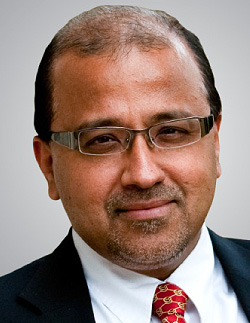
Sudipta Bhattacharya
President and CEO
With more than 20 years of experience in managing and building global teams across the United States, Europe, and India, Sudipta Bhattacharya is a recognized thought leader in the supply chain and manufacturing industries. He first came to Invensys in 2007, and was chosen to head up a new division, Invensys Operations Management, two years later.
Despite the dire economic environment at the time, Bhattacharya was able to create a collaborative culture of openness and grow the company, which is a technology, software, and consulting business for big industrial plants. Today it has more than 9,000 employees in 50 countries, and more than 40,000 clients use the company’s offerings at roughly 200,000 locations in more than 180 countries.
Although Bhattacharya and his Plano-based division have won numerous awards and accolades, he maintains that his biggest success has been his “ability to identify raw talent in people, and empower them while streamlining their capabilities to exceed their own limits.”
He is hopeful that hard work and current trends will spur the company toward continued success. “The three trends of increased focus on manufacturing, an aging work force, and a desire for more energy-efficient systems puts us in a good position, because that is the very heart of the business of what we do,” he says. —K.A.
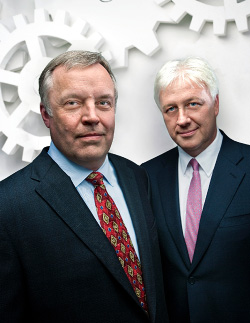
Brian F. Maxted
President, CEO, and Board Member
W. Greg Dunlevy
Executive Vice President and CFO
Reared and educated in England, Brian F. Maxted, president, CEO, and board member of Dallas-based Kosmos Energy Ltd., has had his eyes focused on West Africa for the past decade. In fact, when the oil industry all but abandoned the Republic of Ghana, Maxted took the opportunity to dig deeper and finally struck gold—black gold.
As a co-founder of Kosmos Energy in 2003, along with others, including W. Greg Dunlevy, executive vice president and CFO, Maxted (below at right, with Dunlevy) boasts an impressive international record of billion-barrel discoveries. It was his unconventional thinking and entrepreneurial spirit that led the Kosmos team to discover the Jubilee Field off Ghana—one of the world’s largest oil finds in 2007 and the biggest find off the shore of West Africa during the last decade.
Dunlevy, meantime, brought extensive financial expertise to Kosmos, having had more than 25 years of experience working with large- and mid-cap energy companies. He initially raised funds for the company’s work off West Africa through institutional private-equity investors. The funding also enabled Kosmos to secure a technical team whose expertise rivals that of any “major” in the industry.
Thanks in large part to Maxted, Kosmos has a reputation as a caring neighbor in its areas of operation. Besides hiring and training local residents, the company builds indigenous energy-related organizations to help Ghana and other countries develop sustainable energy industries of their own. At the same time the company’s enterprise value has increased substantially—reportedly to $7 billion—due in part to Dunlevy’s leadership during the company’s recent initial public offering. —K.A.
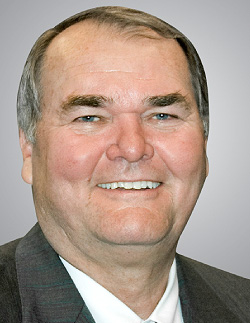
Randy Foutch
Chairman and CEO
This ain’t Randy Foutch’s first rodeo. Laredo Petroleum is his fourth startup in 20 years, but Foutch is just as game as ever. Tulsa, Okla.-based Laredo will be “bigger and better by far than all the others put together,” he declares.
That’s no small boast, given that Foutch’s three previous energy companies—Colt Resources, Lariat Petroleum, and Latigo Petroleum—were all sold for significant profit. (Lariat had even grown large enough that before the sale it had written an S-1 registration statement to go public.)
Laredo focuses on finding oil and gas in the Mid-Continent region or, as Foutch explains, everything “east of snow skiing, west of the Mississippi, and not in salt water.”
Exploration and production used to mean finding and developing individual prospects that might result in a few dozen wells, explains Foutch. Today the focus is on identifying resource plays with room for thousands of potential wells.
Proving out a resource play takes time and money, which is why Laredo went out and raised $350 million in the public debt markets earlier this year. And Foutch sees several more years ahead of raising capital to finance growth.
Although capital discipline is a constant focus for the company, Foutch says he makes sure his 127 employees have everything they need to get the job done, from the right tools to shares in the company. “Life’s tough enough without having a bad place to come to work,” he says. —M.D.
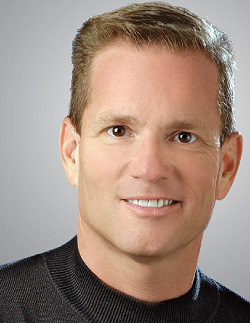
Wayne Goldberg
President and CEO
A lot of people would describe themselves as “people” persons. Wayne Goldberg really is one. His focus on people was a big part of a massive re-imaging program he launched after taking over as CEO of LQ Management, the Irving-based company behind LaQuinta hotels, in 2006.
Although the program included a new logo, new signage, renovations, and upgrades to hotel properties, “people [came] first,” Goldberg says. He focused on improving the experience of guests and strengthening employees’ job satisfaction.
A first-step in that effort was identifying the company’s core values. “We always had core values,” he says, “but we realized that we really couldn’t write them down.”
After surveying employees about what they believed those values were, clearly defining them, and making sure every employee understood them, the evaluations process was changed to gauge whether employees were living up to them or not.
Guests were surveyed about their likes and dislikes, and changes were made in response. “At one property, the person at the front desk greeted guests by saying, ‘Welcome home,’ ” Goldberg says. “We found that guests hated that. It reminded them that they were not at home.”
The LaQuinta brand has seen a 98 percent growth rate, nearly doubling in size since Goldberg became CEO. La Quinta owns, operates, or manages 808 hotels and has 172 properties in the pipeline. —G.V.
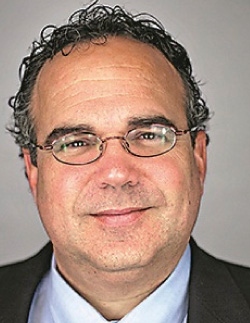
Andres Ruzo
CEO
Andres Ruzo is a man of reinvention. This serial entrepreneur has been involved in more than 30 companies—15 of them startups—and lives the mantra that “the only constant thing in life is change.”
The native of Lima, Peru, founded LinkAmerica in 1994, when he saw an opportunity in the telecom sector to sell large-ticket critical communications equipment. Money flowed in the first seven years as the company gained market share, but then the dot-com bust and 9/11 happened. Business screeched to a halt. Employee count plummeted from 100 to five, and the company’s office space dropped to one building from four.
In 2007, facing the possibility of bankruptcy, Ruzo shifted his business from 100 percent equipment sales to 100 percent services—to the same critical communications industry. LinkAmerica specializes in the 4.9 GHz licensed wireless spectrum for business and government, and offers warehouse management services as well.
Sales have soared from $4 million in 2007 to a projected $200 million this year. “It’s been a total transformation,” Ruzo says.
The privately held, Rowlett-based Link America now has about 20 employees. Its focus is on leveraging technology, building platforms, and collaborating with various entities so it can grow and add value. “We are all about creating value for our customers,” Ruzo says. “That’s what keeps me up at night.” —K.N.


